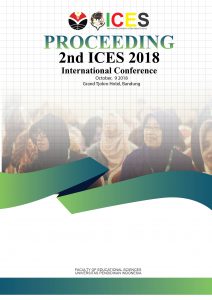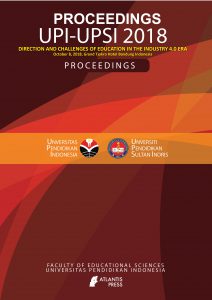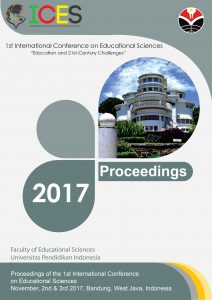Seminar
1st ICES 2017
The First International Conference on Educational Sciences (ICES)will be conducted on 2nd-3rd November 2017, at the Grand Tjokro Hotel, Bandung. This year, the ICES’ theme is Education and 21st-Century challenges. Through this conference, we invite experts, practitioners, and observers of education from all around the globe to sit together to explore various issues and debates on educational research, policies, and experiences. The conference aims to provide a platform to redefine the meaning of education in the 21est century.
 2nd ICES 2018
2nd ICES 2018
Today, we are entering the digital era where it is marked by the fast development of technology and fast exchange of information. These affect the way people behave and more importanly it affects the educational practices. Education is no longer confined to classroom, but it can also be comducted online, with the help of technology. This will change the way human learn and also the way human interacts with one another. The second International Conferences on Educational Science aims to explore the complexities of education practices in the digital era. It attempts to understand the roles of education and to what extent, education can negotiate the challenges in the digital era. It is hoped that the conference can become a space where educators, academics, and researchers can share their ideas, knowledge and experiences on how to navigate educational practices in the digital era.
 8th UPI-UPSI
8th UPI-UPSI
UPI-UPSI is an international conference between two different state universities, namely UPI from Indonesia and UPSI from Malaysia. The first conference was held in 2006 in Malaysia. This conference is an annual bi-annual conference and conference venue between Indonesia and Malaysia. Up to now UPI-UPSI conference has been held 7 times and in 2018 it will be held in Indonesia as the eighth conference. In line with core bussiness UPI and UPSI, this conference also focuses on studies in the field of education. In UPI-UPSI conferences, academics, practitioners, policy makers, students and teachers communicate and share ideas, innovations and past developments in teaching and learning, improve efforts to improve teaching and learning systems, improve the quality of human resources to contribute to achievement national and regional missions.
